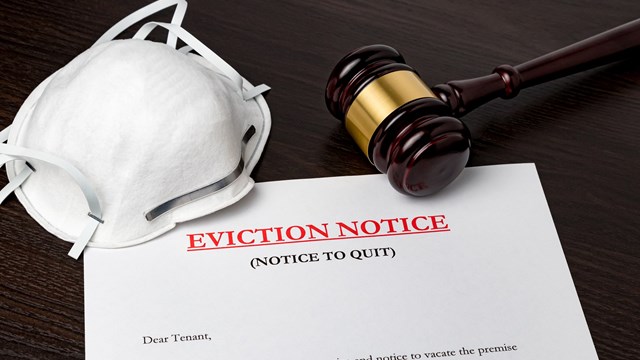
Two state laws make the illegality of a tenant’s use of rented premises a matter of considerable concern to property owners of all kinds, including cooperatives. One empowers local prosecutors to bring eviction proceedings against both the illegally-operating tenant and the landowner; the other makes ordinary property owners and cooperatives as liable as the tenant for injuries inflicted on third parties by the illegal business the tenant is running.
While the first law can be expensive to the tune of tens of thousands of dollars, there is no limit on what the other could cost the property owners and cooperatives, but it could readily be in the tens of millions of dollars.
There are ample precedents for expensive awards of damages for certain kinds of businesses tenants run illegally, especially the sale of counterfeit goods.
Stolen Goods or a Drug Den
Although these are just an example of the kinds of illegal activities that can prove expensive to property owners and cooperatives, they are the perfect example for demonstrating the potentially bankrupting expenses they can present to a property owners and cooperatives that do not take them seriously enough. For purposes of seeing how this can play out, let us then use these as an example.
Example: A cooperative has a building on Manhattan’s Eighth Avenue, in the 40s. The front window of the building proudly displays brand name watches, brand name cameras, and brand name electronics, all at prices that are apparently deeply discounted below the prices one would normally expect such items sold at. The cooperative receives word in June that the police have staged a bust and seized the supposedly discounted goods. The cooperative’s connections inform it that the goods were, in fact, counterfeit. However, the cooperative is also aware that the tenant has done very brisk business and is absolutely meticulous about paying every penny of rent due on no later than five days early. From the cooperative’s perspective, the tenant is ideal. A few days later, the tenant appears to be back in business and indeed business is booming. In all of this hullabaloo, the tenant continues to adhere to a perfect pattern of paying rent.
Now the cooperative receives contact from the holders of the various trademarks infringed by the tenant’s business and finds that they are demanding from the cooperative dollar for dollar every penny the tenant has ever sold. The cooperative is prepared to discuss matters with the tenant when there is another bust and along with everything else, the FBI has seized the tenant’s computers, showing sales in the millions. The tenant is nowhere to be found and the trademark owners are suing the cooperative for those millions of dollars in sales, adjusted upward for what the full price for the products would have sold at, had they been legitimate.
And the cooperative has no defense. Not only is it completely wiped out of its assets, but it defaults on its wraparound mortgage, is foreclosed upon, sold at auction, and all the apartments are tossed back into rent stabilization as rental units for the high bidder at the foreclosure sale.
An Illegal Front
The other vastly more common worry is where a store is being used as a front or an apartment is being used directly as a place for the sale of illegal drugs. The branches of the Civil Court throughout the city have specialized units meant to deal with these cases in an expedited manner. The problem for the cooperative is that such a case can be brought by nearly anyone: the cooperative itself, any cooperator or tenant of a building neighboring within 200 feet, a private organization for the suppression of vice, the district attorney, or the attorney general.
If the cooperative is not the one prosecuting the case, in addition to whatever losses it may sustain, the court may impose on it the costs of the prosecutor’s legal fees plus an additional penalty of up to five thousand dollars. While such penalties are not routinely inflicted for first time respondent-owners, any cooperative who is regularly on the receiving end of such a proceeding can expect the penalties to mount up fairly severely. In fact, one of the reasons that New York City has special segregated court parts to hear these cases is so that the court staff and parties will gather a sense of who the regular players are and respond accordingly. This does, in fact, expedite the proceedings enormously. It also means that no sane board of directors would want to be found twice in any such part. Cooperatives can also face the identical problems when their premises are used as houses of prostitution.
Finally, we need to look to the less obvious criminal—the white collar criminal. For those who, for example, are running Ponzi schemes, the cooperative may have far fewer clues that its premises are being used as a place of an illegal enterprise. There may be no particularly significant traffic. They may be no collections of strangers. There may be no people looking disreputable—no dirty clothing, no bloodshot eyes, no sniffling, no jittery behavior. But the store or apartment may nonetheless be the site of a large scale illegal operation, such as, most commonly, stock fraud. In the days before the invention of cell phones and internet telephones, such places were readily distinguishable by the large numbers of heavy trunk line telephone wires coming in. But those days are gone. But there are cases out there holding the property owners liable for such operations and no reason to believe those cases would not apply to cooperatives with equal rigor.
While clearly easier said than done, the fact remains that there is simply no substitute for vigilance. The only thing worse than a board of directors who does not keep its eyes open for the hanky-panky in its building is one whose eyes are slammed shut to such goings-on. If a tenant pays well, this is good, but if the tenant pays too well, especially in cash, you are going to want to be on the alert. The price of such prosperity can be the death of the cooperative and its return to rent regulation.
Adam Leitman Bailey is the founding partner, and Dov Treiman, the landlord-tenant managing partner of the Manhattan-based law firm of Adam Leitman Bailey, P.C.






Leave a Comment